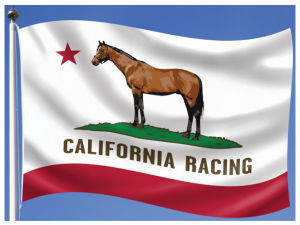Back to Part 1 (Tribal opposition of horse tracks in California online poker market)
The Pechanga Coalition has suggested that any California tribe that supports online poker regulation in which horse tracks are permitted to apply for an operating license is essentially going against the grain of Indian society. But if you speak with the heads of the tribes that support bills like Assemblyman Reggie Jones-Sawyer’s AB 167, that’s genuinely not the case.
 Three prominent tribes that fully back the efforts of Jones-Sawyer are the Rincon Band of Luiseño Indians, the Morongo Band of Mission Indians and the San Manuel Band of Mission Indians. The leaders of those tribes all believe horse tracks must be included for any form of online poker regulation to make its way into the state’s law books.
Three prominent tribes that fully back the efforts of Jones-Sawyer are the Rincon Band of Luiseño Indians, the Morongo Band of Mission Indians and the San Manuel Band of Mission Indians. The leaders of those tribes all believe horse tracks must be included for any form of online poker regulation to make its way into the state’s law books.
They also disagree with their fellow tribes that having horse tracks as competitors in the market will have a negative effect on the Indian nations. Bo Mazzetti, Robert Martin and Lynn Valbuena are the respective chairs of the Rincon, Morongo and San Manuel Bands, and they all agree that horse track participation will have no bearing on the future prosperity of California tribes.
In contrast, Mazzetti is certain that any bill for online poker regulation must include horse tracks to succeed. “There’s no question the race tracks have to be eligible for licensing,” said Mazzetti. “That’s from the governor’s office. It’s going to be in there or there’s no bill.”
At last month’s Western Indian Gaming Conference, Mazzetti warned that passage of any bill will require two-thirds majority, and that it won’t happen without compromise among the collective tribes. “There’s got to be a lot of give and take on all our parts. There will be some things we don’t like,” said Mazzetti.
“There has to be compromise or it won’t get done,” agreed Martin. “At the end of the day, we all want what is best for the tribes.”
But Martin doesn’t believe that compromise will take shape in time to pass online poker regulation before the 2015-16 session is out. “All of the tribes are not going to get together,” he said. “It just is not going to happen.”
Is there any hope for California Online Poker Regulation in 2015?
Unfortunately, the realistic answer appears to be an unequivocal ‘No’. On the one hand, we have Assemblyman Mike Gatto’s AB 9, a bill that designates licensure for tribal gaming operators and commercial card rooms only. On the other hand, we have Jones-Sawyer’s AB 167, which allows horse race tracks to apply for a license, and also contains a very limited bad actors clause that would make room for PokerStars to enter the market.
Resting squarely in the middle of those bills are two identical measures proposed by Assemblyman Adam Gray (AB 431) and Senator Isadore Hall III (SB 278). These are considered ‘shell’ bills, as they only lay out the minimum requirements for online poker regulation, with a great deal of detail to be added by legislators along the way. However, they are notably lacking any precise language for license eligibility, which could open the door for both PokerStars and horse tracks.
In order to break the repetitive cycle of failure in the Golden State, supporters will have to convince the Pechanga Coalition that online poker regulation and taxation is a commercial asset to the state, not an extension of the IGRA, and that the sustainability of Indian communities is not at risk. That will be a lot easier said than done.
